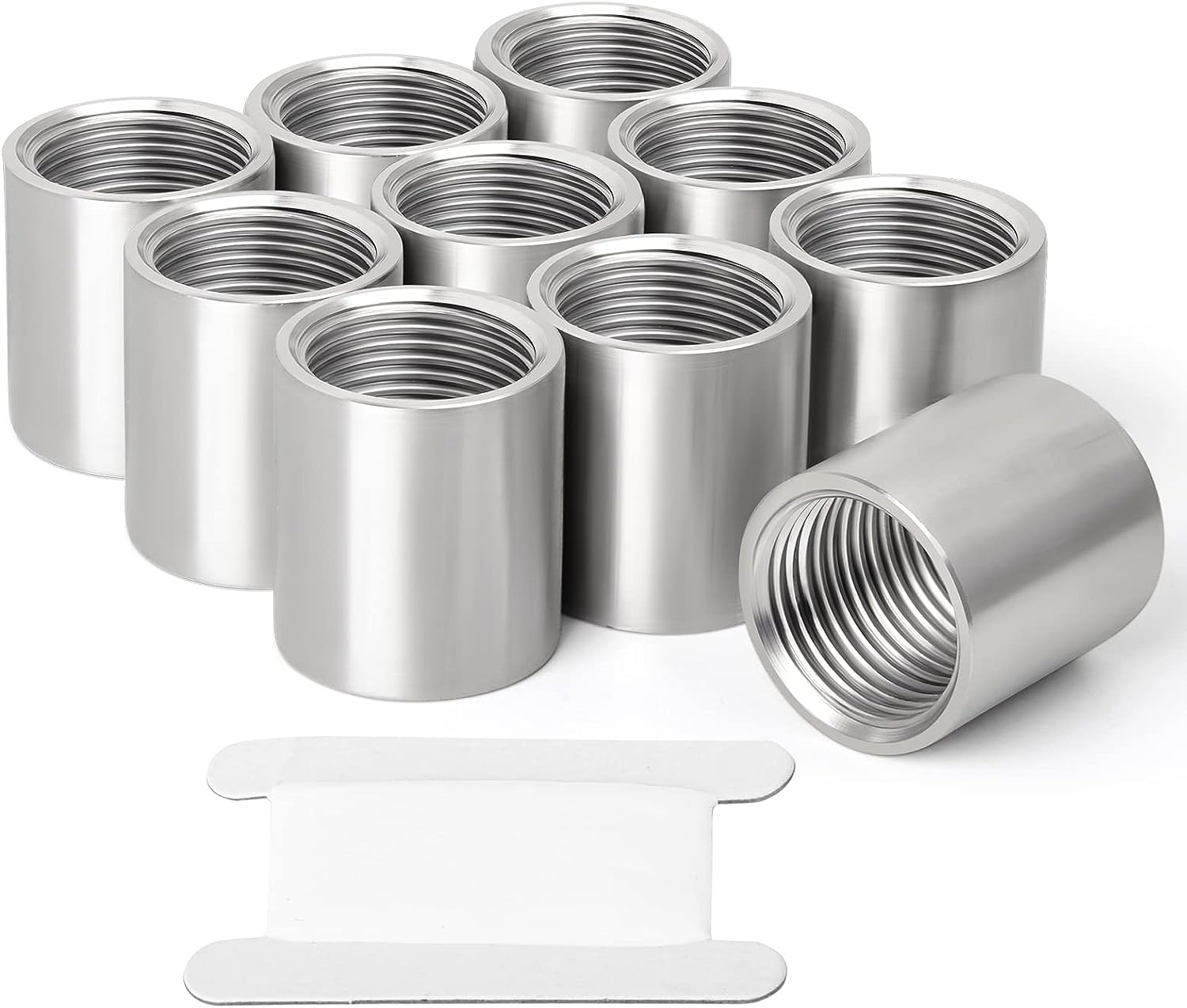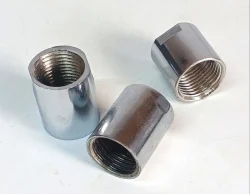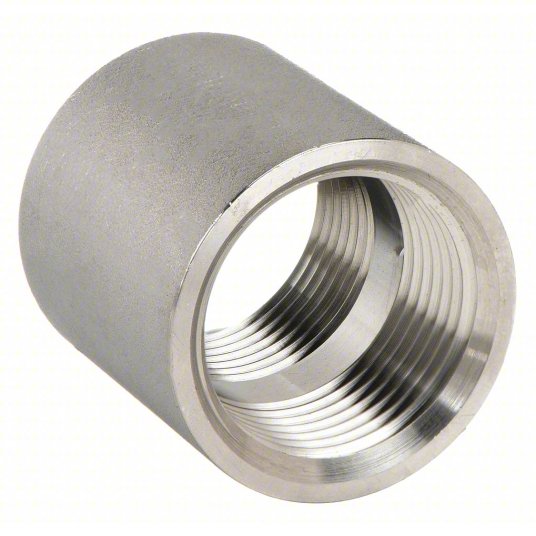Product Description
Stainless steel ISI 316 1.4408 DIN11851 female food grade sanitary fitting hose coupling
The standard of sanitary fittings are DIN11850/11851, SMS1145, 3A, RJT. Material is stainless steel ISI 316/1.4408. Sanitary coupling is connected with round nut, welding or using with ferrule. Working pressure is 10 bar. It is widely used in industries of drink, milk, food, pharmacy, beer, biological medical treatment and cosmetics. The great advantage of it is corrosion-resistant, nice mechanical polish and easy to connect and disconnect, what’s more, it is up to the sanitary standard.
Our Advantage
We are experienced as we have been in this industry as a manufacturer for more than 10 years. Both of quality and service are highly guaranteed. Absolutely prompt delivery. We can produce according to specific drawings from customers. Welcome OEM/ODM project. Strict control on quality. High efficient and well trained sale service team. ISO9001, CE and SGS certified.
FAQ
1.Q: Are you a producer or trading company?
A: We are an experienced manufacturer. We own production line and kinds of machines.
2. Can you make our specific logo on the part?
Yes please provide me your logo and we will make your logo on the part.
3. Can you manufacture products according to my drawings?
Yes we can manufacturer according to client’s drawings if drawings or samples are available. We are experienced enough to make new tools.
4. Q: Can I get some samples?
A: We are honored to offer you our samples. Normally it is for free like 3-5 pcs. It is charged if the samples are more than 5 pcs. Clients bear the freight cost.
5. Q: How many days do you need to finish an order?
A: Normally it takes about 30 days to finish the order. It takes more time around CHINAMFG season, or if the order involves many kinds of different products.
6. what kind of rubber washer do you apply to camlock couplings?
Normally we use NBR gasket.
product-list-1.html /* January 22, 2571 19:08:37 */!function(){function s(e,r){var a,o={};try{e&&e.split(“,”).forEach(function(e,t){e&&(a=e.match(/(.*?):(.*)$/))&&1

Are there any Safety Considerations When Using Stainless Steel Couplings in Specific Applications?
Yes, there are several safety considerations to keep in mind when using stainless steel couplings in specific applications:
- Proper Installation: Ensure that the stainless steel couplings are correctly installed according to the manufacturer’s guidelines. Improper installation can lead to misalignment and increased stress on the coupling, potentially causing premature failure.
- Temperature and Pressure Limits: Pay attention to the temperature and pressure limits of the stainless steel coupling. Exceeding these limits may compromise the structural integrity of the coupling and pose safety risks.
- Corrosion Resistance: While stainless steel is known for its corrosion resistance, it is essential to select the appropriate grade of stainless steel that matches the specific environment in which the coupling will be used. In corrosive environments, using the wrong stainless steel grade can lead to degradation and failure over time.
- Maintenance: Regularly inspect and maintain the stainless steel coupling to detect any signs of wear, damage, or corrosion. Address any issues promptly to prevent potential hazards.
- Protective Gear: In some industrial applications, the stainless steel coupling may be exposed to rotating parts or other potential hazards. Ensure that appropriate protective gear, such as gloves or safety guards, is used when necessary.
- Emergency Shutdown: Establish a proper emergency shutdown procedure in case of coupling failure or other emergencies. This procedure should be clearly communicated to all relevant personnel.
- Load Considerations: Be aware of the load requirements and limitations of the stainless steel coupling. Overloading the coupling can lead to stress and failure.
- Environmental Factors: Consider environmental factors such as temperature fluctuations, humidity, and exposure to chemicals. These factors can influence the performance and safety of the coupling.
It is essential to conduct a thorough risk assessment for each specific application where stainless steel couplings are used. Following safety guidelines and best practices can help mitigate potential risks and ensure the safe operation of the mechanical system.

Differences Between Stainless Steel Couplings and Aluminum or Carbon Steel Couplings
Stainless steel couplings, aluminum couplings, and carbon steel couplings are commonly used in various industrial applications, but they differ in their material properties, performance characteristics, and suitability for specific environments. Here are the key differences between these types of couplings:
- Material Composition:
- Corrosion Resistance:
- Strength and Durability:
- Weight:
- Temperature Tolerance:
– Stainless Steel Couplings: Stainless steel couplings are made from alloyed steel containing a minimum of 10.5% chromium. This chromium content creates a passive oxide layer that provides excellent corrosion resistance.
– Aluminum Couplings: Aluminum couplings are made from aluminum, a lightweight metal known for its high strength-to-weight ratio. Aluminum offers good corrosion resistance but is not as resistant as stainless steel.
– Carbon Steel Couplings: Carbon steel couplings are made from plain carbon steel, which has a higher carbon content. While carbon steel offers good strength and toughness, it is more susceptible to corrosion than stainless steel or aluminum.
– Stainless Steel Couplings: Stainless steel couplings offer the highest level of corrosion resistance among the three materials. They are well-suited for use in corrosive environments, such as marine applications or food processing, where protection against rust and chemical exposure is essential.
– Aluminum Couplings: Aluminum couplings provide moderate corrosion resistance, but they are not recommended for highly corrosive environments or applications with exposure to acidic or alkaline substances.
– Carbon Steel Couplings: Carbon steel couplings have the lowest corrosion resistance of the three materials and may require additional coatings or treatments to protect against rust and corrosion.
– Stainless Steel Couplings: Stainless steel couplings offer excellent strength and durability, making them suitable for heavy-duty applications and environments with high mechanical loads.
– Aluminum Couplings: Aluminum couplings are lightweight and have good strength but may not be as durable as stainless steel or carbon steel couplings.
– Carbon Steel Couplings: Carbon steel couplings provide good strength and toughness, but they may not be as durable as stainless steel couplings in corrosive environments.
– Stainless Steel Couplings: Stainless steel couplings are heavier than aluminum couplings but comparable to or slightly lighter than carbon steel couplings.
– Aluminum Couplings: Aluminum couplings are the lightest among the three materials, making them suitable for applications where weight reduction is a priority.
– Carbon Steel Couplings: Carbon steel couplings are heavier than aluminum couplings but offer higher strength and load-bearing capacity.
– Stainless Steel Couplings: Stainless steel couplings can withstand a wide range of temperatures, making them suitable for both high-temperature and cryogenic applications.
– Aluminum Couplings: Aluminum couplings have good thermal conductivity but may not be suitable for extremely high-temperature applications.
– Carbon Steel Couplings: Carbon steel couplings have good temperature tolerance but may be limited in extremely high-temperature or cryogenic environments.
The choice of coupling material depends on the specific requirements of the application, such as the operating environment, load capacity, and corrosion resistance needed. Stainless steel couplings are often preferred for applications where corrosion resistance and durability are paramount, while aluminum couplings are chosen for their lightweight properties. Carbon steel couplings find use in applications requiring good strength and moderate corrosion resistance.

Industry Standards and Certifications for Stainless Steel Couplings
Yes, there are industry standards and certifications that govern the manufacturing and performance of stainless steel couplings. These standards ensure that the couplings meet specific quality and safety requirements for various applications.
Some of the common industry standards and certifications for stainless steel couplings include:
- American National Standards Institute (ANSI): ANSI sets standards for various industrial components, including couplings. ANSI standards ensure the couplings’ dimensional accuracy, material quality, and performance characteristics.
- International Organization for Standardization (ISO): ISO provides globally recognized standards for couplings, among other products. ISO standards cover areas like coupling design, materials, and manufacturing processes.
- American Society for Testing and Materials (ASTM): ASTM standards define the material properties and testing procedures for stainless steel couplings, ensuring their durability and reliability.
- European Committee for Standardization (CEN): CEN develops European standards for couplings, adhering to the European Union’s regulations for quality and safety.
- Underwriters Laboratories (UL): UL is a certification organization that tests and certifies couplings for compliance with safety and performance standards. UL-listed couplings have undergone rigorous testing and evaluation.
When selecting stainless steel couplings, it is essential to ensure that they comply with relevant industry standards and carry appropriate certifications. These standards and certifications provide assurance of the coupling’s quality, performance, and safety, making them suitable for specific applications.


editor by CX 2024-03-08
